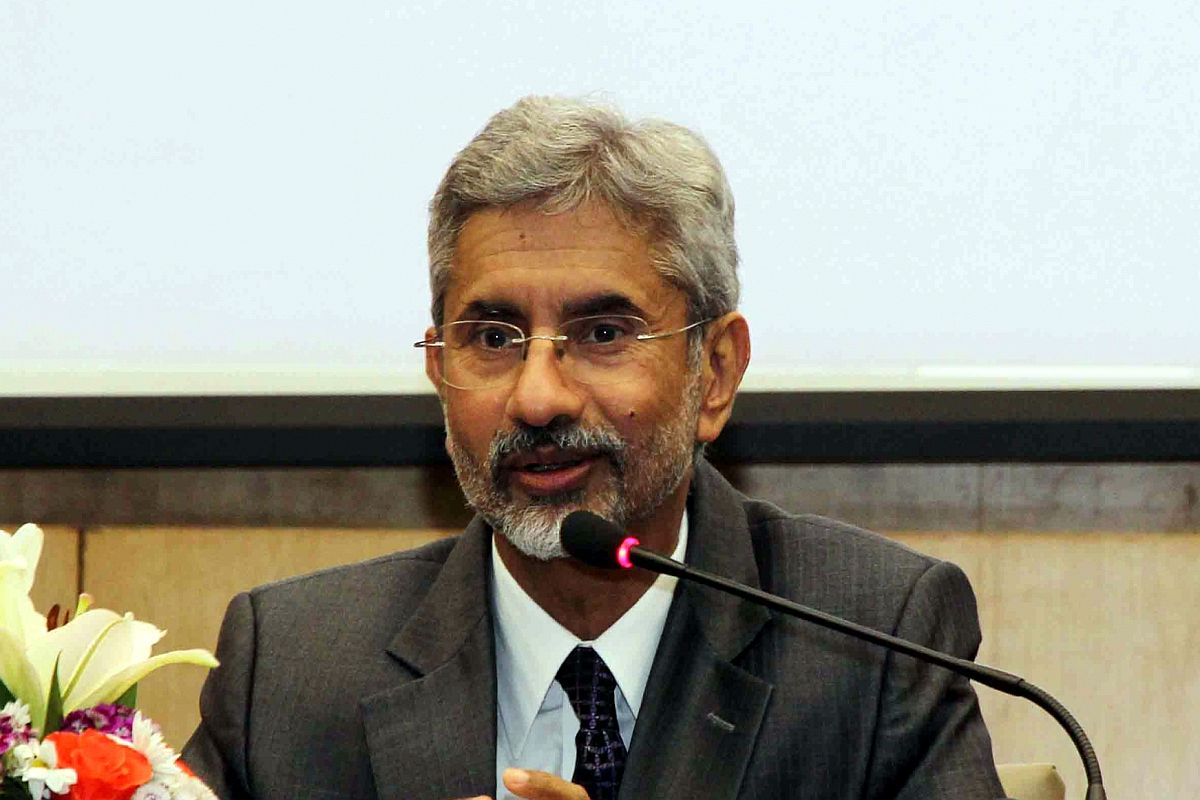India broaches Kachchatheevu with Lanka to woo Tamil Nadu voters

Amidst the raging election season in Tamil Nadu, the Centre is mounting diplomatic moves to try and wrest control of the Kachchatheevu Island from Sri Lanka.
India’s foreign minister S Jaishankar was recently in the island nation on a three-day mission to broach the subject, an emotive issue both in Tamil Nadu and Sri Lanka.
The issue, which has been a political hot potato was raked up by former chief minister J Jayalalithaa in 2011, immediately after her return to power, by filing a case in the Supreme Court, declaring that the cession of the island to Sri Lanka was unconstitutional.
The island that falls between Sri Lanka and India was under the joint ownership of the two countries under the British rule.
Following the signing of two maritime agreements between then Indian prime minister Indira Gandhi and her Lankan counterpart Srimavo Bhadaranaike in 1974 and 1976, India had ceded control of the island to Sri Lanka. But the decision was not ratified by the Indian Parliament.
Tamil Nadu fishermen routinely get beaten back by the Sri Lankan Navy whenever they venture into the Palk Strait and stray into their waters. The news of Indian fishermen getting brutally assaulted, captured and sometimes even killed by Sri Lankan forces often hits the headlines in Tamil Nadu, which has a long coastline and a large fishing community.
BJP believes the move to take control over the island, would strike a rapport with the people of Tamil Nadu and help building a support base in the state. If Prime Minister Narendra Modi manages to strike a deal on Kachchatheevu, it could be his “surgical strike” moment for the state.
Jaishankar’s proposal did meet a roadblock in Sri Lanka. He had to walk a tight rope as the extreme proponents of ‘Sinhala nationalism’ are seeking scrapping of the Indo-Sri Lankan accord that grants certain autonomy to the Tamils living in the northern parts of the country.
Earlier in November, New Delhi rushed its National Security Advisor (NSA) Ajit Doval to Colombo to hold meetings with his Sri Lankan counterpart, following intelligence reports that warned of consequences due to rising Sinhala fundamentalism in the island state.
Two Sinhala ministers, close to the Rajapaksa brothers — Mahinda and Gotabaya — were seeking the abolition of the 13th Amendment in the Sri Lankan constitution that facilitates creation of provincial councils there. They want Sri Lanka to be declared as a Sinhala majority state, a step that many fear would curb the rights of the minorities including Lankan Tamils. The ministers have also been referring to the issue in their public speeches.
Sri Lanka has a poor record when it comes to human rights, and India’s concerns remain high following the 2009 mass killings of Sri Lankan Tamils during the end of the civil war. India’s failure in checking the genocide resulted in the withdrawal of the DMK’s support to the then UPA government in Delhi.
Jaishankar during his joint press briefing with Lankan counterpart, Dinesh Gunawardena, referred to the 13th Amendment and said, “It’s in Sri Lanka’s own interest that the expectations of the Tamil people for equality, justice, peace and dignity within a united Sri Lanka are fulfilled.”
Gunawardena, who spoke before Jaishankar, perhaps anticipating India’s concerns said, that President Gotabaya “is firmly committed to the well-being, progress and opportunities of all our citizens —Sinhalas, Tamils, Muslims and all.”
Jaishankar mission was also aimed at restricting China’s influence over the neighbouring country. Responding to Sri Lanka’s request for COVID vaccines, Jaishankar promised all help, saying, “COVID-19 has given us an opportunity to collaborate even further. India sees international cooperation in this area as its duty.”
Jaishankar said he would carry home Sri Lanka’s request on the vaccine, but avoided confirming Gotabaya’s earlier remark that he would “give priority to Sri Lanka when India begins to export the vaccine”.
Jaishankar met a delegation of Tamil minorities led by Tamil National Alliance (TNA) leader R Sampanthan and discussed the development works in Sri Lanka’s North and Eastern provinces as well as the role of provincial councils and devolution of powers. He also met representatives of Tamil Progressive Alliance or TPA, Sri Lanka’s Housing and Community Infrastructure minister Jeevan Thondaman, minister for Rural Areas Development S Viyalanderan, former prime minister Raneil Wickramasinghe, Fisheries Minister, Douglas Devananda and Leader of Opposition, Sajith Premadasa.
(The writer is a Delhi-based journalist)
